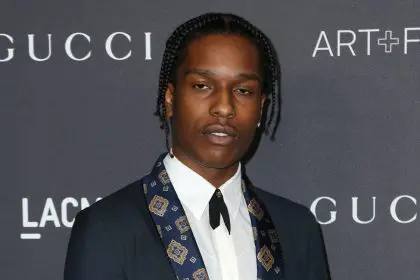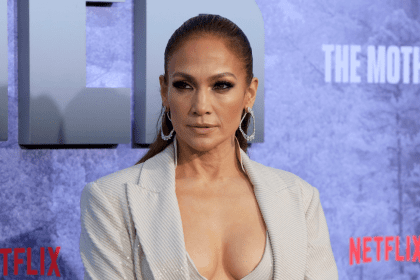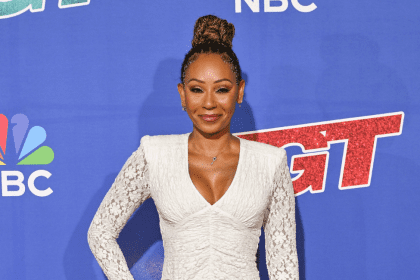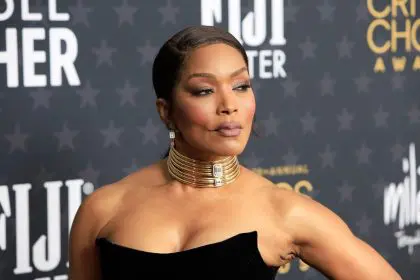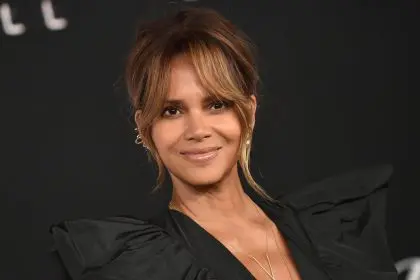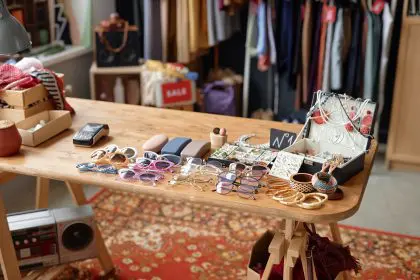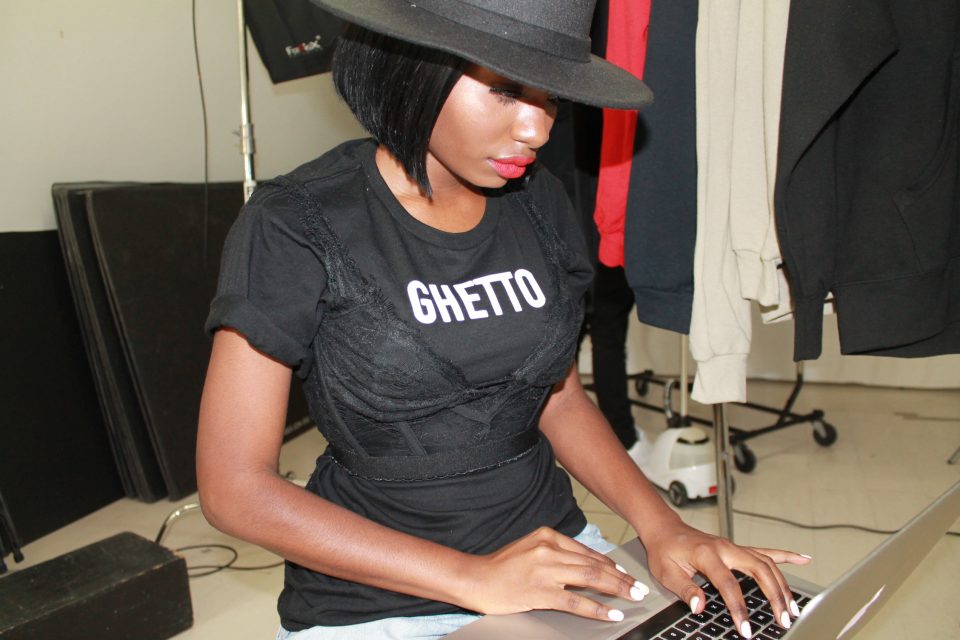
If you’re a fashion junkie, more than likely you’ve stumbled across Black Vogue. The clothing line went viral after a Paris Fashion Week attendant was photographed wearing an eye-catching “Ghetto Until Proven Fashionable” hoodie.
The woman behind the design is 25-year-old Nareasha Willis, a multitalented designer, creative director, entrepreneur and activist. The hoodie is a part of her Black Vogue Movement, a social justice campaign to promote diversity on and off the runway. Willis uses fashion to tackle real issues like cultural appropriation and inequality.
The Jersey City, New Jersey, native has also created her own lane with her digital fashion platform, Avenue N. Willis, features street style, photography and collaborations through Avenue N.
We caught up with the fashion activist to discuss her bold brand.
What is Avenue N?
Avenue N is a platform I created in 2013 to showcase my street chic style and spotlight Black designers in the New Jersey area. It then birthed the Black Vogue Movement, which is a social justice movement that seeks equity in the fashion industry. It inspired me to continue AVNU as a full fashion line that uses fashion as a tool to make political statements and spark controversial conversations that are long overdue.
What does fashion mean to you?
Fashion is usually a popular trend that everyone follows, however, it’s also a manner of doing something. I knew I loved fashion when wearing designer clothing didn’t fascinate me but when the designer made the clothes as a work of art [I was fascinated]. Art is about expressing different perspectives of the world. That is what I want to continue to do through the things I create with purpose.
How did you get your start in the fashion industry?
My mom sat me down my second year in college and asked me why am I running away from my passion for fashion. She knew from when I was a little girl that fashion was my passion. She allowed me to be expressive in many ways, especially with my outfits and hair as a child. Your mother knows what’s best for you and knows you better than anyone. She was right. It’s all about making a statement with a purpose. I wouldn’t call myself a designer now, just simply a creator. I learned from past unfavorable situations and experiences. And labels tend to marginalize the way people think of you.
Tell us about the Black Vogue Movement.
The Black Vogue Movement was created to promote diversity on and off the runway to reassure every Brown girl and boy that our culture is appropriate and influential in the fashion industry. Black Vogue means Black fashion, which is constantly appropriated. Our culture is marketed as something trendy. Black Vogue will always be timeless.
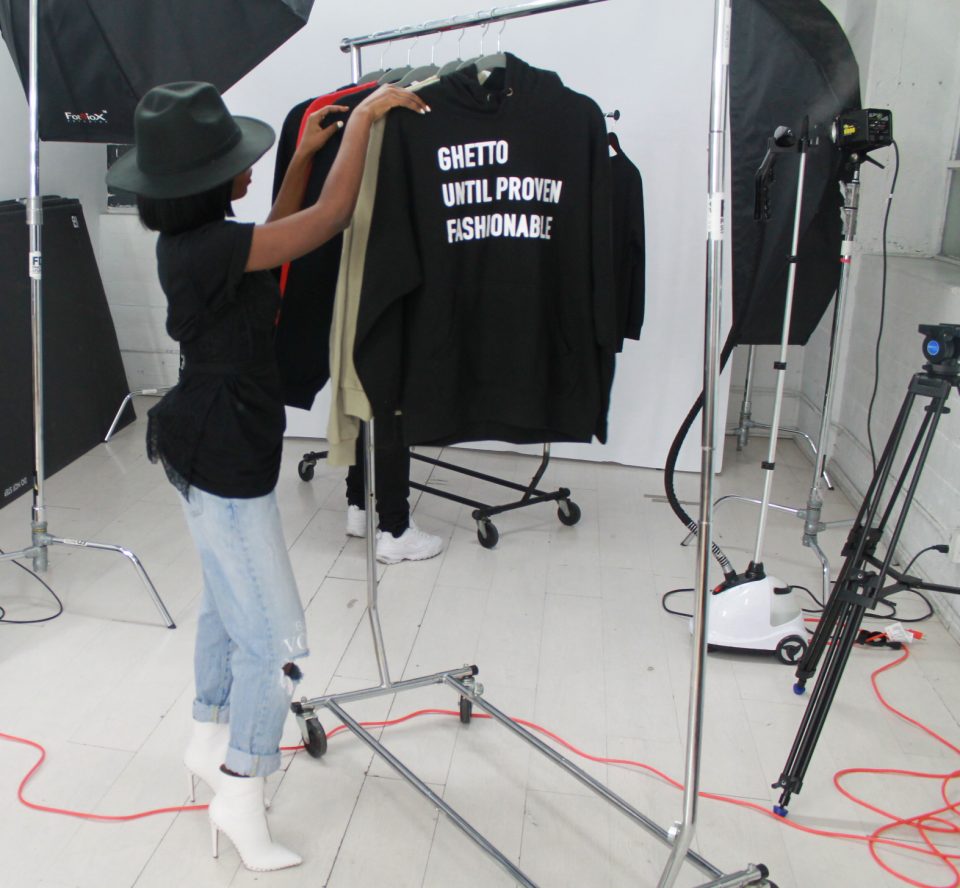
How do you use fashion to promote change?
I use fashion as a tool to seek equity in the fashion space. Fashion is more than clothes. It constructs classism, which plays a major role in our society. With my movement, I want us to not only have these conversations about appropriation but also strive to take action to make a difference. It starts with buying Black, embracing our culture and not settling for anything that disrespects our people. I’m not looking for fame, recognition or features. I genuinely want to help make a difference within our community. As a creative, this is my start. No one can tell you how to show up for your people. I encourage everyone to find what works for them and to stand up for what they believe in.
What is the meaning behind Ghetto Until Proven Fashionable?
Ghetto Until Proven Fashionable is a statement that sums up cultural appropriation. When Black people are expressive in the way they dress, we are constantly classified as ghetto. We are restricted in corporate offices from wearing locks, cornrows and even Afros. However, when European designers use these looks on non-Black models, it is then praised for being “chic” or fashionable. The issue of cultural appropriation isn’t about dictating who can wear what, but when you insult people and then profit from it, we then have an issue. The truth of it all is that pop culture fantasizes Black culture for profit.

